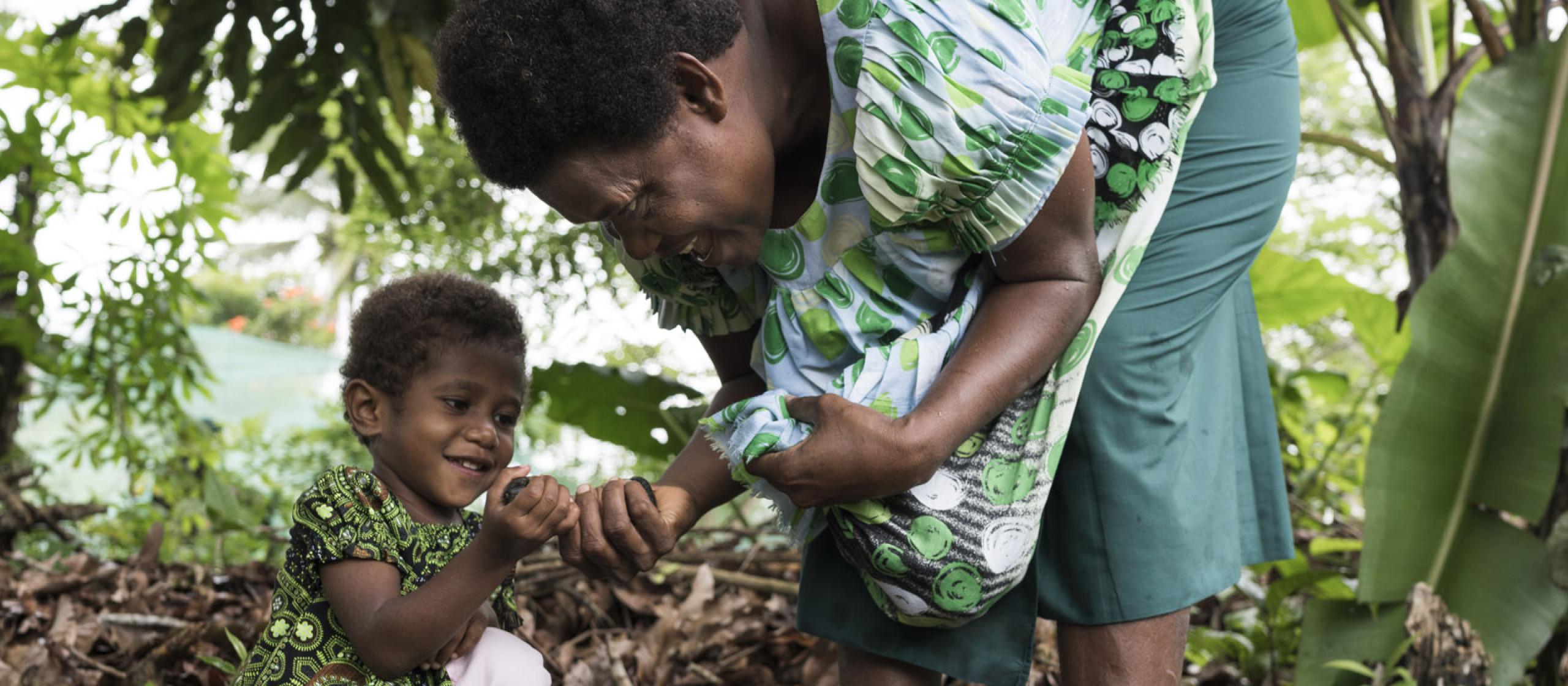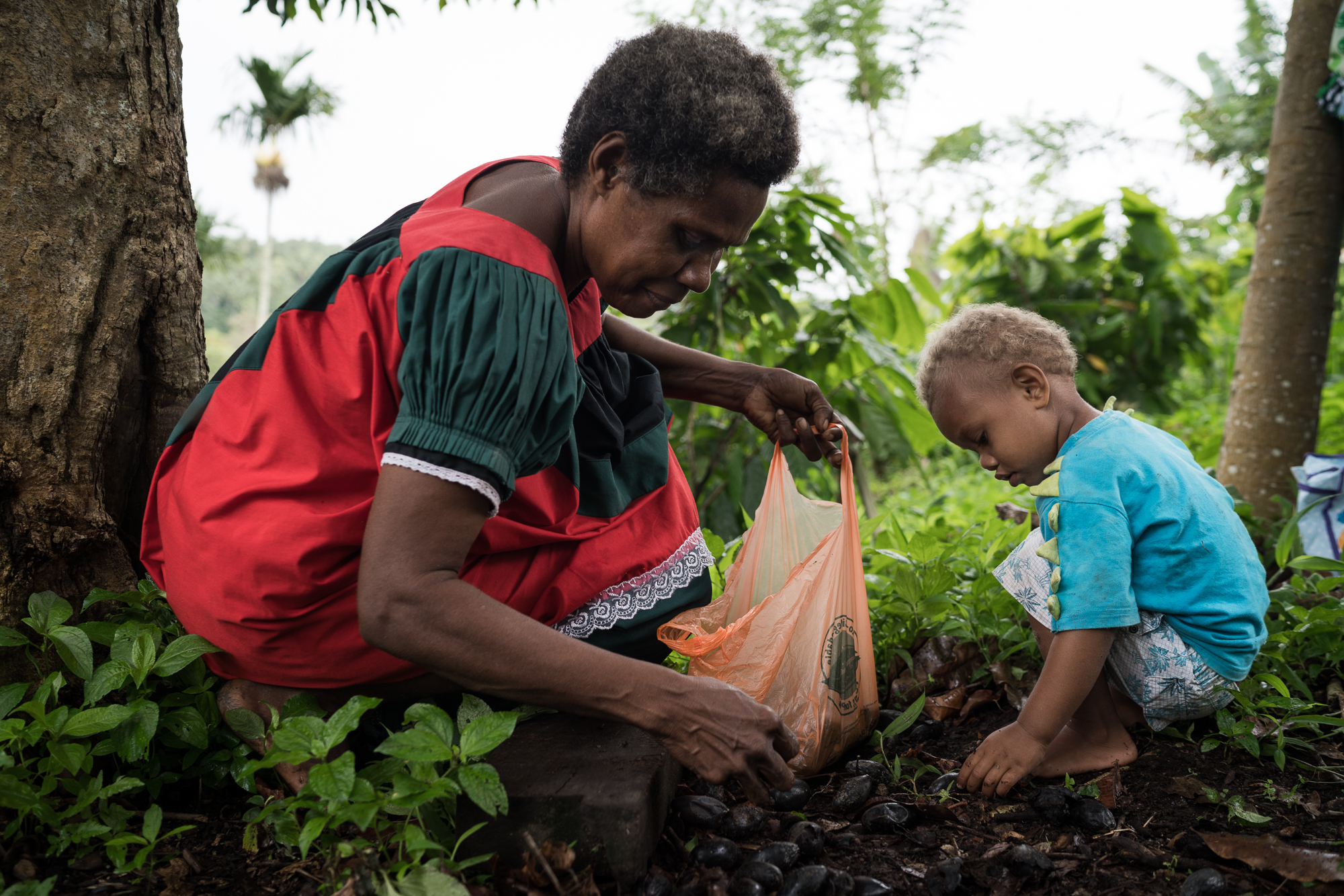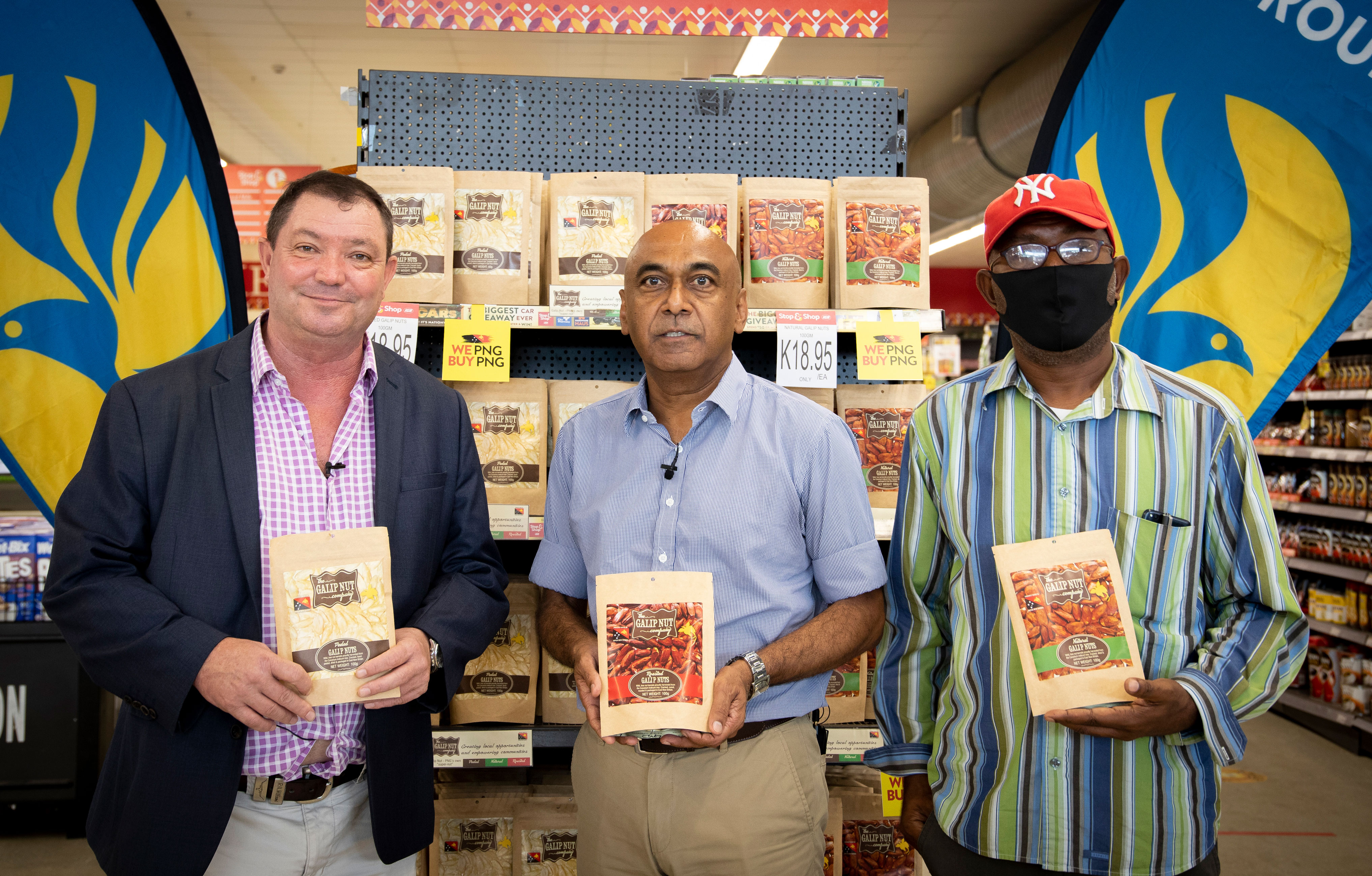As a species indigenous to the region, galip nut (Canarium indicum) has been used by the people of PNG for thousands of years. Now research into how to establish the nut as a high-end, value-added product has kickstarted an emerging galip nut industry.
Through ACIAR support for over 10 years, Professor Helen Wallace from the Centre for Planetary Health and Food Security (Griffith University) is leading a diverse team of science, agribusiness and social research experts from both Australia and PNG.
Team members from Griffith University, The University of Adelaide and PNG’s National Agriculture Research Institute (NARI) are expanding research into the processes needed to get the galip nut industry off the ground.
Professor Wallace said more than 80% of galip nut suppliers in PNG are smallholder farmers relying on family labour and living in very remote locations with limited access to distant markets.
‘In PNG, looking after galip nut is traditionally women’s work and women have really benefited from this growing industry,’ said Professor Wallace.
‘They are involved across the supply chain, from cultivation and harvesting to processing and selling. By scaling up the market, we will empower even more women to participate.’
Since the first project started more than 10 years ago, the galip nut project has made considerable progress. ACIAR-funded research has led Griffith University, The University of Adelaide and NARI to set up The Galip Nut Company, with a pilot processing facility in East New Britain, PNG’s Islands Region. The facility demonstrates the profitability and demand for galip nut and that galip nut can be processed and produced commercially for export.
Both galip nut farmers and foragers can sell nuts to the processing facility, rather than processing the nuts themselves and selling into limited local markets.
This is already providing benefits and helping to improve the livelihoods of these farming households. Recent surveys of smallholders participating in the galip nut industry indicate that 70–90% of them are able to save money as a buffer against future household expenses.





